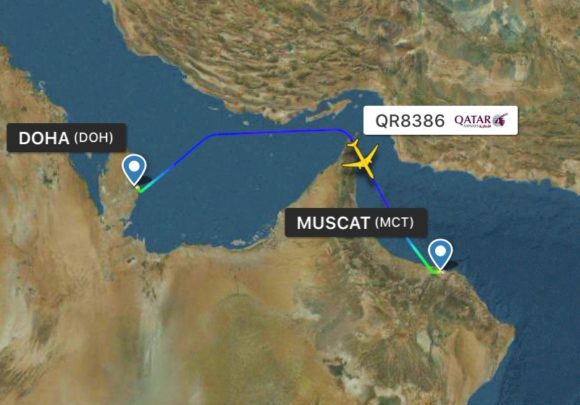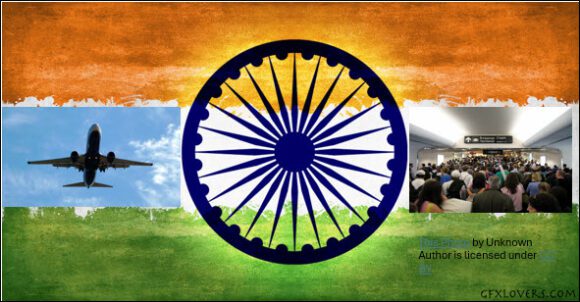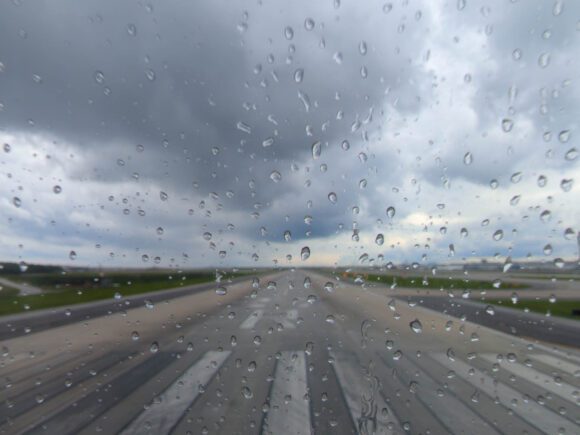
QatarAirways AirbusA320
The feud between Qatar and four Arabian states over the unilateral blockade against Qatar has entered a new chapter. Qatar Airways (not the government, although it is its sole shareholder…) has launched arbitration against the United Arab Emirates (UAE), Egypt, Saudi Arabia, and Bahrain. It seeks $5 billion in compensation for damages the airline has incurred since imposing the blockade in June 2017.
Without prior warning, the four states imposed the blockade as they accused Qatar of supporting and financing terrorism or terrorist groups, either directly or indirectly in support of the Iranian government. The blockade includes aerial, maritime, and terrestrial lines between the countries but has hit Qatar Airways extra hard as it withholds the airline the right to overfly the countries and denied access to its airports.
As a result, Qatar Airways has been deprived of dozens of lucrative routes within the Gulf-region, especially those to Dubai. Since 2017, passengers to Doha from the four states have to opt for alternative routes from neighboring countries like Oman or Kuwait, which still have direct links to Qatar.
Long-haul services also have to circumvent the airspace of the four countries, although Bahrain has relaxed part of this again. Traffic to Africa or South America, for example, has to fly around the UAE, costing Qatar Airways extra flight time and (fuel) costs.
The blockade has hit Qatar Airways hard, but the airline responded by opening up new routes to generate new income. In the first year since the blockade, QR started services on 24 new routes to Europe, Asia, and Australia.
The annual report for the fiscal year on March 31, 2019, is showing year-on-year growth on revenues and capacity, despite the loss of many services in the Gulf region. Operating expenses were higher, notably fuel costs (QR 18.1 billion compared to 13.3 billion the previous year). More recent data are not available.
Qatar Airways QR8386 by Airbus A350-900 on July 22, 2020: the route from Doha to Muscat (Oman) shows how it has to circumvent the UAE. (Flightradar24)
Qatar has always denied any involvement in terrorism and called the blockade “unlawful”. It claims the only purpose of the blockade is destroying Qatar Airways’ competitive position within the region as it is a direct and fierce competitor to Emirates, Etihad, Gulf Air, and Saudia.
“The decision by the blockading states to prevent Qatar Airways from operating in their countries and flying over their airspace is a clear breach of civil aviation conventions and several binding agreements they are signatories to”, says Qatar Airways CEO Akbar Al Baker.
International Court rules in favor of Qatar
Qatar Airways has tried to fight its position at the International Civil Aviation Organization (ICAO) Council, citing international agreements, but this was appealed by the four countries in June and July 2018. They claimed the Council lacked jurisdiction to resolve the claims raised by Qatar and that they were inadmissible.
On July 14, the International Court of Justice in The Hague rejected the claims of the four states and in a 15-1 vote decided that the ICAO Council has the jurisdiction to entertain the application.
A week on, and Qatar Airways has now announced four arbitration procedures under three treaties: the OIC Investment Agreement, the Arab Investment Agreement, and the bilateral investment treaty between Qatar and Egypt. The four countries are accused of violating these treaties, “including by expropriating and failing to adequately protect and secure Qatar Airways’ investments, discriminating against Qatar Airways, and failing to provide fair and equitable treatment to the airline and its investments.”
As Al Baker said in a QR statement: “After more than three years of efforts to resolve the crisis amicably through dialogue yielded no results, we have taken the decision to issue Notices of Arbitration and pursue all legal remedies to protect our rights and secure full compensation for the violations. The blockading states must be held accountable for their illegal actions in the aviation sector, which includes a failure to comply with their obligations under bilateral agreements, multilateral agreements, and international law.”
So far, the four states have not publicly responded to the arbitration case.
Views: 5




